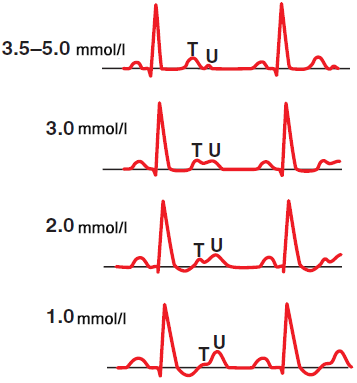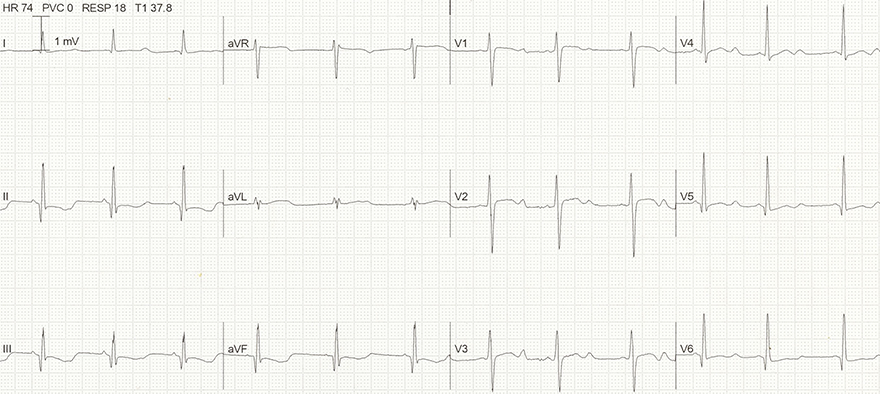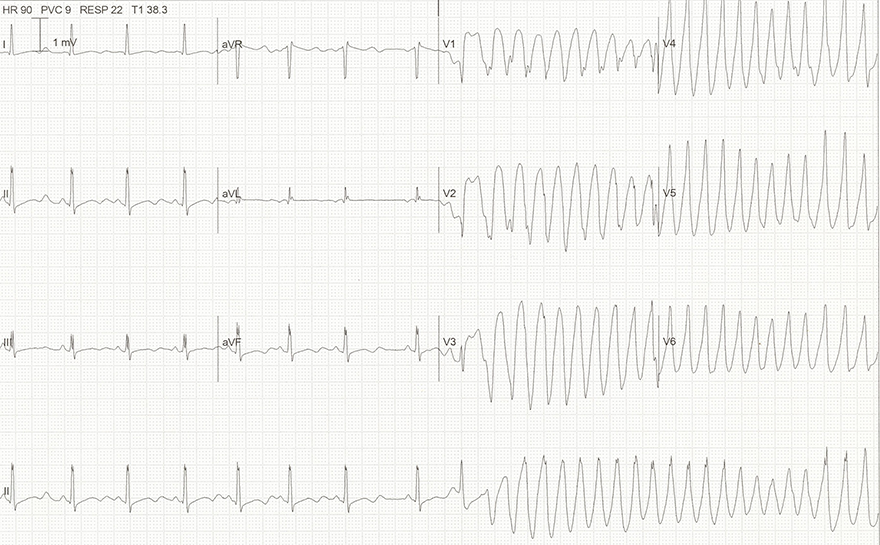
|
ECGbook.com Making Medical Education Free for All |
Upload ECG for Interpretation |

|
ECGbook.com Making Medical Education Free for All |
Upload ECG for Interpretation |



Hypokalemia (1.7 mmol/l)

Hypokalemia (1.9 mmol/l)

Hypokalemia (1.9 mmol/l) and Torsades de Pointes
Sources
Potassium (K+)
|

|
ECG and Hypokalemia
|

|

Hypokalemia (1.7 mmol/l)

Hypokalemia (1.9 mmol/l)

Hypokalemia (1.9 mmol/l) and Torsades de Pointes
Sources